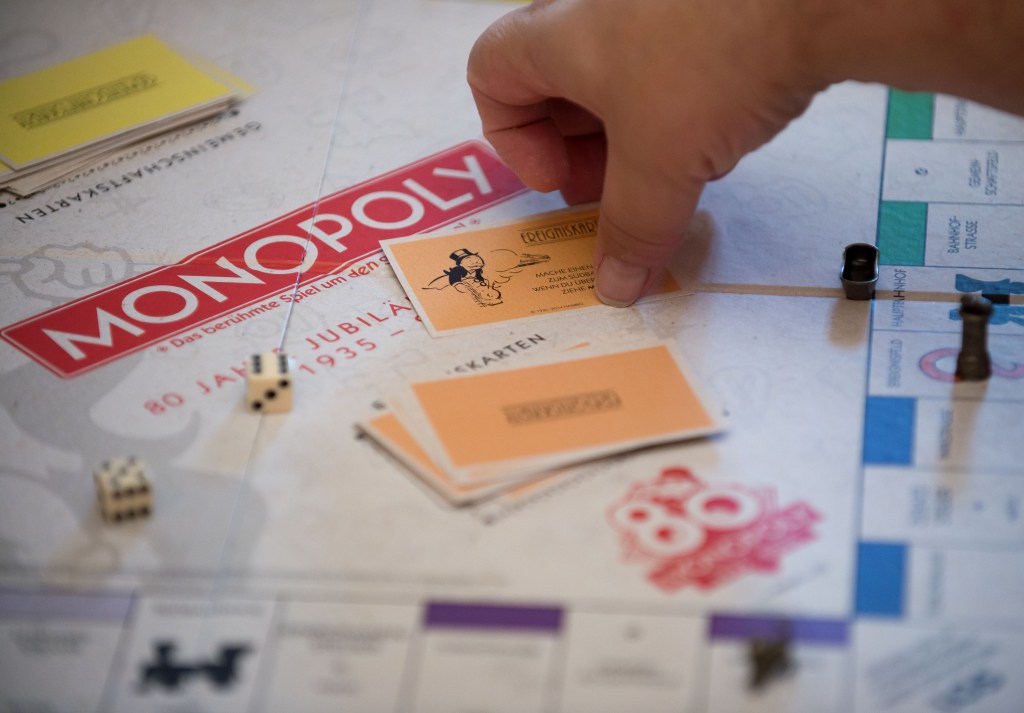The Department of Justice believes Apple is playing dirty to squash competition, so the DOJ sued the iPhone company on Thursday, in a case joined by more than 15 state attorneys general.
According to the lawsuit, Apple is accused of trying to monopolize the smartphone market with practices like setting unfair rules and fees in its App Store, locking people into its ecosystem and stifling competition in multiple ways across its software, platform and devices.
It’s a sprawling case that has experts poring over the details. But along the way, a few other interesting tidbits have emerged. Here are five fascinating facets of the case.
1) Message’s blue and green bubbles could go bye-bye
The DOJ specifically called out Message bubbles, which allows iPhone users to identify nonusers. Fellow i-people can send each other high-quality videos and pictures, but Apple degrades the quality for Android-to-iPhone cross-border multimedia messaging, it said.
Few people would argue with improving quality, but some people might be sad to see the color coding go — like single people in the dating scene. Message bubbles have been a sort of vetting tool, with blue (marking a text from a fellow iPhone user) and green (denoting another platform, primarily Android) signaling a romantic partner’s likely class or financial status. Whether that’s accurate is debatable, but it doesn’t matter to the dating hordes that turned it into a social phenomenon — especially after Android smartphone makers began pumping out an enormous array of budget models.
2) Some irritating things could go away — like signing up and paying online to use an account in an app, or the scourge of incompatible devices
Apple’s 30 percent cut goes deep, forcing some developers into an annoying sign-up process. This can kick users to the web to sign up and pay for memberships or subscriptions online, then urge them to come back to the app to log in. Fortunately, the Apple tax doesn’t affect brands selling physical products. But virtual fashion and other digital goods are another story.
If Apple is required to open up iOS, so that other apps can forego the App Store (and the hefty fee), there would be no need for this annoying sign-up process. This could also usher in a wave of unscrupulous apps, if users can just download them from anywhere. Avoiding that is precisely why some people choose Apple gadgets. Others prefer the freedom to choose. The debate affects hardware, too. The court will weigh whether Apple is deliberately sabotaging connectivity with other technologies to unfairly favor its own, and the legalities of that. The potential result: Apple Watch paired with Android device, anyone?
3) More choice of apps, wallets, third-party app stores and more are on the table
In March, the European Union ruled that Apple must allow users to download apps from other sources, not just its App Store, to comply with its Digital Markets Act. This is opening the way for people to download software directly from the internet, at least in Europe. If the latest lawsuit succeeds, U.S. users could see the same thing. At least by then, Apple will have had some experience doing that.
4) In its response, Apple listed a valid reason for users to worry
Most people will probably skip over the company’s press statement as corporate fluff. But it actually contains a good point. The company prides itself on “designing products that work seamlessly together, protect people’s privacy and security, and create a magical experience for our users.” In other words, the reason why Apple has a reputation as a premium tech provider is because of its strict control over its devices, operating system and services. That doesn’t excuse monopolistic practices, but there’s a legitimate risk of the iPhone, Apple Watch, iPad or Mac being a lot less magical if it opens up to anything, including cruft and bad actors.
There’s a fine line between hammering a nail and taking a sledgehammer to a platform, and if Apple loses, it’s not clear if the judgment will account for that.
5) Microsoft once faced similar accusations…from Apple
Microsoft faced its own DOJ monopoly suit in 1998, in a landmark case for the tech industry. People who remember it know that the Redmond, Wash., tech giant lost, but what the public may not realize is Apple’s role. The irony is that the latter is now facing the same accusations it once lobbed at its Windows rival — a detail that the DOJ would like to remind everyone about. “In 1998, Apple cofounder Steve Jobs criticized Microsoft’s monopoly and ‘dirty tactics’ in operating systems to target Apple, which prompted the company ‘to go to the Department of Justice’ in hopes of getting Microsoft ‘to play fair,’” the department said in the filing. “But even at that time, Apple did not face the same types of restrictions it imposes on third parties today … “
The DOJ called out the fact that Windows computers didn’t block iPod syncing, and Microsoft didn’t demand 30 percent of every song purchased in the PC version of iTunes. Then it went on, adding that “Similarly, when Apple brought the iPhone to market in 2007, it benefited from competition among component makers and wireless carriers.”
The jab paints Apple as a thin-skinned hypocrite — one that wouldn’t be where it is today, if others demanded the same hoops that it now forces others to jump through.



